
..
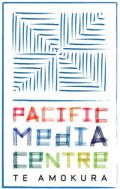 Open letter - reply to Marc Edge in the Fiji Sun
Open letter - reply to Marc Edge in the Fiji Sun
A response to Dr Edge's reply to Thakur Ranjit Singh's article “Western way not the best way for Fiji” in the Fiji Sun.
I am surprised and disappointed by the May 4 letter from Dr Marc Edge in response to Fiji Sun contributor Thakur Ranjit Singh. Firstly, Mr Singh’s views do not represent mine but Dr Edge’s unfair response has prompted me to enter this debate. Secondly, I regard Dr Edge’s comments relating to Mr Singh’s significant coup thesis at Auckland University of Technology as incorrect and inappropriate for an educator. Mr Singh was examined robustly by three external examiners with expert knowledge of Fiji media and coups. Dr Edge does not qualify in this category. His comments also raise doubts about the integrity of AUT that are unacceptable and totally unsupported by the facts.
Dr Edge is entitled to his views on peace journalism or development journalism models, which he has criticised on several occasions since my recent interview on the topic on Radio Australia, but they reveal a conventional Western mindset that encourages conflict reporting and ignores the challenges and responsibilities of the media in developing countries such as Pacific Island states. AUT has been a pioneer in conflict resolution education in New Zealand and the Pacific.
Dr Edge has embarked on his Pacific media education career only in the past year. I have been a Pacific media educator for 20 years and my support for researching and developing notions of peace journalism has been honed over many years of reporting in conflict situations such as the start of the Bougainville war, the Kanak pro-independence struggles, the first three coups in Fiji and the Rainbow Warrior bombing. In addition, I taught and headed journalism programmes at the two leading island-based universities in the South Pacific – University of the South Pacific (USP) and University of Papua New Guinea (UPNG) - for almost a decade.
I would suggest interested readers actually go to my recent Journal of Pacific Studies article, Conflict reporting in the South Pacific: Why peace journalism has a chance, delivered at a conference at USP in 2010, to get a more useful perspective. Also, I would suggest they view our 8 minute video on Pacific media freedom here on the Pacific Media Centre’s YouTube channel.
Professor David Robie, PhD
Director, AUT Pacific Media Centre
Auckland
6 May 2012
Issues such as journalism styles and methodologies will be discussed at the upcoming Media and Democracy conference hosted by the University of the South Pacific supported by the AUT Pacific Media Centre on 5-6 September 2012. Selected double blind peer-reviewed articles will be published in a special edition of Pacific Journalism Review.
 Open letter to Dr Wadan Narsey and the blog Coup 4.5 gatekeepers
Open letter to Dr Wadan Narsey and the blog Coup 4.5 gatekeepers
Response to Dr Narsey's article Fiji's cancerous conspiracies of silence:
Another interesting piece on Coup 4.5, Wadan, though it's a shame that your offering appears on a site that is subject to precisely the same kind of censorship that applies when, for instance, one of my pieces appears in the Fiji Sun.
I decided after your piece appeared to test that level of censorship by submitting several anonymous comments - all different - that took issue with your description of evil when applied to the regime. None of them got past the gatekeeper, even though they were reasoned and certainly as cogent as anything else that appears on 4.5.
All this places you in an interesting ethical position when it comes to criticising the lack of free expression in Fiji while enjoying the protection from critical comment afforded to you by these poseurs for a free media who fail to practise what they preach.
There are 30 odd pieces praising you in the comments section of your latest piece. If several written by me didn't pass muster, how many others have been similarly gagged? You rail against people like me for condoning "evil" yet are party to the very same failings you seek to highlight.
Will we see this double standard mentioned in your next treatise? I somehow doubt it. Far better to bask in the adulation of a seemingly adoring public while your detractors are silenced. Not much different from the "evil" dictator, I'd have thought.
Kind regards nonetheless. I admire your intellect, whatever our differences.
Graham Davis
Grubstreet
Sydney, Australia
16 November 2011
 Congratulations on the Pacific media freedom report
Congratulations on the Pacific media freedom report
Dear colleagues at Pacific Media Watch,
Congrats on the media freedom focus to the PJR issue David and team -- it provides much food for thought to discussions of the upcoming IFJ Pacific Media Freedom report which will be discussed at the forthcoming regional media roundtable, and launched later this year.
The work of documenting and analysing the challenges confronting free and independant media continues -- and the more of us weighing in on the debates involved, the better.
Onwards, Lis
Lisa Williams-Lahari
Coordinator
IFJ Pacific Media Freedom Project
18 October 2011
PMC/PJR Pacific media freedom report
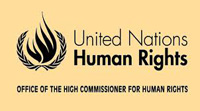 Open letter to the editor of Savali - Right of reply from Matilda Bogner
Open letter to the editor of Savali - Right of reply from Matilda Bogner
Response to an editorial in the Samoan government newspaper Savali distributed by the PMC's Pacific Media Watch on September 22, 2011.
I write in response to your [Savali editor] article of 22 September titled "Hypocrisy: UN OHCHR’s double talk on media freedom" which is inaccurate with regard to the work of the Office of the High Commissioner for Human Rights (OHCHR) Pacific Regional Office. The author argues that OHCHR is ignoring and not engaging with Fiji on media freedom and other human rights issues, while targeting easier countries for criticism. This is not the case.
In fact, since the 2006 coup in Fiji, the 2009 abrogation of the Constitution and introduction of Public Emergency Regulations (PER), OHCHR has expressed its deep concern about the heavy restrictions on media freedom and many other human rights issues related to these events. This office has stated publically that the long term damage of undermining fundamental institutions such as the media and judiciary cannot be underestimated. We have strongly urged a return to the rule of law, to the reinstatement of the judiciary and an end to media censorship. We have publicly criticised the PER, which seriously restricts the right to public assembly and freedom of expression, and gives the military and other law enforcement personnel broad powers of arrest and detention.
Not only the Pacific Regional Office of OHCHR in Suva, but its High Commissioner for Human Rights Navi Pillay and the top United Nations official, Secretary-General Ban Ki-moon, have called for urgent action towards respect for human rights, the restoration of a legitimate government and constitutional order in Fiji. This stance remains unchanged. OHCHR Pacific Regional Office will continue to work through both public and private channels to support human rights in Fiji and throughout the 16 nations of the Pacific.
Matilda Bogner
Regional Representative for the Pacific
Office of the High Commissioner for Human Rights
Suva, Fiji
http://pacific.ohchr.org
Savali editorial on Pacific Media Watch
IFJ open letter to Fiji regime leader Commodore Josaia Voreqe Bainimarama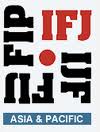 Prime Minister
Prime Minister
Republic of the Fiji Islands
Government House
Berkley Crescent
P.O. Box 2513
Government Buildings
Suva
Re: Concern for Trade Union Rights in Fiji
Dear Commodore Bainimarama,
I am writing to you on behalf of the International Federation of Journalists (IFJ) Asia-Pacific representing journalists and trade unionists in the region to express our concerns over reported violations of human and trade union rights in Fiji since the implementation of military rule in 2006. The IFJ represents more than 600,000 media workers in 131 countries, including our affiliates the Media, Entertainment & Arts Alliance Australia and the Engineering, Printing and Manufacturing Union of New Zealand.
While the IFJ, MEAA and EPMU have been aware of the erosion of trade union rights in Fiji since 2006, our concerns have been heightened by the promulgation of the Essential National Industries Employment Decree on September 7, 2011 and the Essential National Industries and Designated Corporations Regulations on September 8, 2011. The Decree and Regulations diminish workers’ rights and remove many of the conditions guaranteed by International Labour Organisation conventions ratified by Fiji. The IFJ supports the widely held view that the Decree and Regulations seriously diminish workers’ rights and violate human rights, in contravention of Article 23, subsection 4 of the Universal Declaration of Human Rights.
Of particular concern to the IFJ and its affiliates and partner organisations including the Pacific Freedom Forum, is the definition of Fiji Broadcasting Corporation as an “essential service” which therefore comes under the purview of the Decree. Media workers and Fiji’s citizens already contend with insidious state censorship as a result of the Media Decree introduced in April 2010, which places strict controls the media and forbids negative portrayals of your administration. Media workers from Fiji’s beleaguered public broadcaster now also face an erosion of their working conditions and rights to organise and take industrial action.
Unfortunately the attacks on working conditions are not limited to our colleagues in the media industry, but will also directly affect all public sector workers, and any private sector employer deemed an essential service under the Decree. A report from our colleagues in the Fiji Trades Union Congress (FTUC) issued on August 26, 2011 identifies systematic attacks on workers’ rights in Fiji that have occurred since the abrogation of Fiji’s Constitution in April 2009, and the subsequent introduction of a series of decrees which have eroded the conditions of Fiji’s Employment Regulations Promulgation of 2007. We hold grave concerns that the most recent Decree will intensify widespread discrimination against union members in Fiji, as identified in the FTUC report.
Most disturbingly, these attacks have extended to the arbitrary arrest, assault and detention of senior trade unionists in Fiji, including FTUC National Secretary Felix Anthony, and the pressing of criminal charges against FTUC President Daniel Urai and National Union of Hotel and Catering Workers organiser Dinesh Gounder for unlawful assembly under Fiji’s Public Emergency Regulations. We note with concern that Public Emergency Regulations are still in place, despite a promise from your administration in 2009 that they would be temporary.
The IFJ notes Fiji’s ongoing exclusion from the Pacific Islands Forum on account of the regression of democratic values and the principles of human rights since the 2006 coup. As an indicator of your commitment to democratic values and human rights, and in the interest of promoting good governance in the Pacific region in line with the values of both the Universal Declaration of Human Rights and the Guiding Principles and Values of the Pacific Islands Forum, the IFJ respectfully encourages you to:
Immediately drop the unlawful assembly charges against Daniel Urai and Dinesh Gounder
Immediately repeal the Essential National Industries Employment Decree
Immediately repeal the 2010 Media Decree
Immediately repeal the Public Emergency Regulations
Call elections by no later than 2012, not September 2014 as recently announced
Implement workplace legislation in line with the ILO conventions ratified by Fiji
Thoroughly investigate all cases of assault on union leaders documented in the attached FTUC report and swiftly bring their attackers, including those allegedly responsible within Fiji’s military, to justice
We strongly advise that Fiji’s future prosperity will be held back if Fiji’s power-holders continue to seek to restrict freedom of the media, freedom of expression and freedom of association, thus diminishing the freedoms of all citizens of Fiji.
Sincerely,
Jacqueline Park
Director
IFJ Asia-Pacific
16 September 2011
Struggling for democracy in Pakistan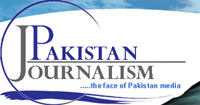 Since childhood, I wanted to do something that could make me feel proud of something. I wanted to be in public life where I could play an important role in making things better, whether locally, nationally or internationally. In Pakistan, at my career beginning point, politics was considered crappy work, the military as an intruder, the judiciary was too weak to establish even its own existence. All other professions were also, somehow, considered to be corrupted by elite bureaucracy, ruthless military dictators and politicians. I found out that journalism is the only field which can allow me to work independently where I can fight for the rights of poor, rights of distressed and rights of those whose voice is always unheard. Thus, I found out that it is the only career that suits my nature and ambitions. This was the reason that I took my bachelors degree in journalism when I was 17.
Since childhood, I wanted to do something that could make me feel proud of something. I wanted to be in public life where I could play an important role in making things better, whether locally, nationally or internationally. In Pakistan, at my career beginning point, politics was considered crappy work, the military as an intruder, the judiciary was too weak to establish even its own existence. All other professions were also, somehow, considered to be corrupted by elite bureaucracy, ruthless military dictators and politicians. I found out that journalism is the only field which can allow me to work independently where I can fight for the rights of poor, rights of distressed and rights of those whose voice is always unheard. Thus, I found out that it is the only career that suits my nature and ambitions. This was the reason that I took my bachelors degree in journalism when I was 17.
I believe that I’ve always given my best. Since my entry into the field, I’ve had multifarious experiences where I was blackmailed, tortured and disturbed unlawfully. I am the president of the Young Journalists' Association of Pakistan. I am also member of Pakistan Federal Union of Journalists and South Asia Free Media Association (SAFMA). I’ve also recently took up the charge of chairman, Meet the Press committee of the National Press Club of Islamabad. I’ve also taken up the responsibility as a member of the governing body/Executive Council of Rawalpindi Islamabad Union of Journalists (RIUJ). I’ve been actively engaged with different youth groups, civil society organisations and media organisations. I’ve been actively engaged in struggle against dictatorship of former military ruler, Pervez Musharraf. I was arrested while participating at World Press Freedom Day. I was also banned from attending the Press Gallery of Pakistani Parliament by the government, first-ever in the history of Pakistani Parliament, so that I cannot cover the news items independently. The squad of Prime Minister took out their guns on me while I was following my professional duties in the Election Commission. The Chief Justice of Pakistan took sue motto notice of this illegal action. I also have the privilege to file a case against the sitting Prime Minister and his governmental machinery including former military ruler Pervez Musharraf in order to proceed towards my aims - i.e. free media, democracy and supremacy of law.
I’ve been struggling for democracy in Pakistan. I am still working to promote true democracy in the country and to end the menace of fundamentalism and radicalisation in Pakistan. I believe that democracy is the only way to fight "talibanisation". I intend to work further on the subject where Pakistan can be a modern, liberal, democratic and a developed country.
I believe in true and honest journalism. I believe that one owes a lot to his/her readers when writing something, which should be unbiased and based on facts. I believe in personal moral standards and human rights sensitive.
My personal life has contributed a lot to my work. I take my stories from different sources and observations. I would like to state that my personal matters do not affect my work. Specifically, my writings against former dictator Pervez Musharraf were never due to any personal grievance. It was purely what I believed - i.e. a democratic Pakistan is more able to achieve and deal with during the political turmoil, economic imbalance and/or radicalisation.
I am proud that I played a major role in my country reverting back to a democratic regime, where we have free media, free judiciary and free people.
The Sunday Times is a weekly news magazine covering issues from business to politics, environment, social issues and corruption. It is a widely read magazine published in English and has a readership of almost 5000 people ranging from diplomats to senior governmental employees. It has the honor of publishing several stories related to corruption, high-handedness of authorities, environmental issues, water management and human rights.
Now I am working as content manager/\web editor on Radio Pakistan (PBC).For the first time in the history of the PBC website is lanching in two languages Urdu & English. I am also attending a training workshop with the Clubration of DW about current affairs reporting.
Farrukh Nawaz
President of the Young Journalists' Association of Pakistan
Islamabad
Pakistan
5 June 2011
Peace Journalism in Pakistan seminar
PINA plays important role for Pacific media freedom It would seem that due to political pressure from outside the region that the work that the Pacific Islands News Association (PINA) does is criticised. In the opinion of our organisation, PINA has and continues to fill a very important role in maintaining media freedom in the South Pacific. Their role is not an easy one but we believe that continuing dialogue is infinitely more likely to succeed than parroting the biased opinions of others.
It would seem that due to political pressure from outside the region that the work that the Pacific Islands News Association (PINA) does is criticised. In the opinion of our organisation, PINA has and continues to fill a very important role in maintaining media freedom in the South Pacific. Their role is not an easy one but we believe that continuing dialogue is infinitely more likely to succeed than parroting the biased opinions of others.
Bob J. Pratt
Executive Secretary
Media Council (Fiji) Ltd
PO Box 11852
Suva
Phone 679 3450484
Mobile 679 9937802
5 May 2011
Great tool for our region - an idea for stories in French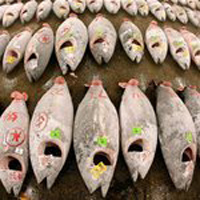 My name is Pierre Riant and I am the executive producer of the French Service of Radio Australia. Our stories are broadcasted through the French-speaking Pacific: New Caledonia, French Polynesia, Vanuatu, Wallis and Futuna, via local radio and newspapers.
My name is Pierre Riant and I am the executive producer of the French Service of Radio Australia. Our stories are broadcasted through the French-speaking Pacific: New Caledonia, French Polynesia, Vanuatu, Wallis and Futuna, via local radio and newspapers.
Our job is to inform the French-speaking Pacific about the political, economic, social and cultural situation in the English-speaking pacific.
I think the Pacific Media Centre is a great tool for our region and would like to convey my congratulations. It would be good if news and stories in French could be included somewhere in your network so our French-speaking neighbours could also enjoy your website.
News and stories could be picked up from our website or we could send a selection of news: 24hdanslepacifique.com
Pierre Riant
French Service
Radio Australia
27 April 2011
Reply to 'News groups accuse Fiji Media Watch of campaign against them'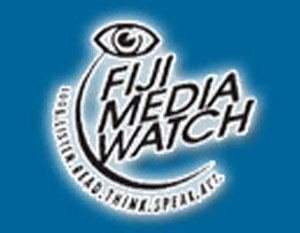 I can understand the concern raised by the mass media in your report.
I can understand the concern raised by the mass media in your report.
While our organisation believes in empowering communities through media literacy, and hence we are a member of Fiji Media Watch, the approach to media education during this critical period in Fiji's history where there are many controls in place - including the Media Decree - requires an informed approach and one that augurs well for partnership with media organisations to better understand the media sector and therefore we should be committed to affirming dialogue as an approach to raise issues of concern.
Media literacy we believe is also about empowering communities with the knowledge to develop and use alternative media forms in addition to equipping communities with media monitoring tools to enhance their analysis and advocacy.
I would therefore encourage Fiji Media Watch to:
- take a more systematic approach through the use media montoring tools such as those used for the Global Media Monitoring Project would enable the availability of quantitative as well as qualitative analysis of media content rather than subjective opinions
- engage in dialogue with media operators including community media when developing their community education programmes
- contextualise information regarding the media sector to ensure that participants understand the journey from government-led and a purely public service-oriented media environment to one that is a diverse sector which represents the diversity of opinions and 'tastes' today and one where learning and journeying together can support a Culture of Peace Journalism.
Sharon Bhagwan Rolls
Executive Director
femLINKPACIFIC
+6799244871 (Mobile)
+6793310303 (Office DL)
www.femlinkpacific.org.fj
Long line of UPNG doctoral graduates
There is a major inaccuracy in the Divine Word University story of today carried by Pacific Media Watch: PNG: DWU pioneers homegrown PhD studies
UPNG has a long list of PhD graduates, several of them with distinguished scholarly and research careers.
Perhaps you would like to issue a correction. If so, I’d be happy to see it.
John Ballard
Visiting Fellow
Australian National University
Canberra



